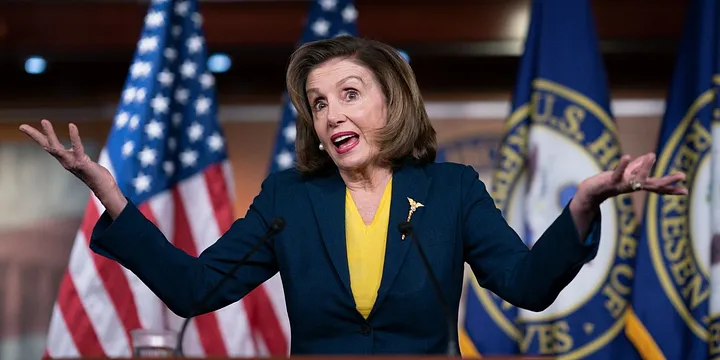In recent years, the intersection between politics and the stock market has become a subject of intense scrutiny and debate. As politicians strive to serve the best interests of their constituents, questions have arisen regarding the ethical boundaries surrounding stock trading within political organizations. This article delves deep into the world of controversial stock trading within United States political organizations, shedding light on the potential conflicts of interest, regulatory gaps, and public perception surrounding this practice.
The Genesis of Controversy:
The controversy surrounding stock trading within political organizations can be traced back to high-profile instances that garnered significant media attention. These cases have raised concerns about potential insider trading, unfair advantages, and the ethical conduct of public officials.
One notable example is the case of a senior congressman who allegedly traded stocks based on non-public information related to pending legislation. Such actions, if proven, would represent a clear violation of securities laws and undermine the trust of the public in the political system.
Conflict of Interest and Regulatory Loopholes:
The intertwining of political power and financial markets presents a unique challenge. Public officials hold significant influence over policy decisions that can impact the value of specific stocks and sectors. This proximity to market-moving information creates a potential conflict of interest when these officials engage in stock trading.
Interestingly, the laws and regulations that govern stock trading for politicians are far from comprehensive. While the Stop Trading on Congressional Knowledge (STOCK) Act of 2012 was enacted to prohibit insider trading by members of Congress, it has been criticized for its limited scope and lack of enforcement mechanisms. Furthermore, the Act fails to address the issue of stock trading within political organizations beyond the confines of Congress.
Public Perception and Investor Confidence:
The public’s perception of stock trading within political organizations has a significant impact on investor confidence and the overall integrity of the financial markets. When politicians engage in trading activities that are perceived as exploiting their positions for personal gain, it erodes public trust and undermines the belief that markets operate fairly.
To maintain the public’s confidence, it is crucial for political organizations to adopt robust and transparent practices when it comes to stock trading. This could include implementing stricter reporting requirements, enacting cooling-off periods, or even considering outright bans on stock trading for certain positions within political organizations.
Addressing the Controversy:
To mitigate the controversy surrounding stock trading within political organizations, a multifaceted approach is necessary. First and foremost, enhancing the existing regulatory framework is crucial. The STOCK Act should be strengthened to encompass all political organizations, including staff members and lobbyists. Additionally, regulatory bodies such as the Securities and Exchange Commission (SEC) should collaborate closely with political entities to establish clear guidelines and reporting standards.
Furthermore, transparency and accountability should be prioritized. Public officials and political organizations should proactively disclose their stock holdings and trades in a timely and easily accessible manner. This would enable independent monitoring and discourage potential conflicts of interest.
Conclusion:
The controversy surrounding stock trading within United States political organizations raises critical questions about ethics, fairness, and the delicate balance between public service and personal financial gain. To ensure the integrity of our political system and financial markets, it is imperative that regulatory bodies, politicians, and the public work together to establish comprehensive and robust guidelines that govern stock trading within political organizations.
By addressing the regulatory gaps, enhancing transparency, and holding public officials accountable, we can begin to restore public trust and confidence in the political process. Ultimately, a well-regulated and ethically-driven system will help safeguard the interests of both investors and the public, ensuring a fair and level playing field for all participants in the stock market.












